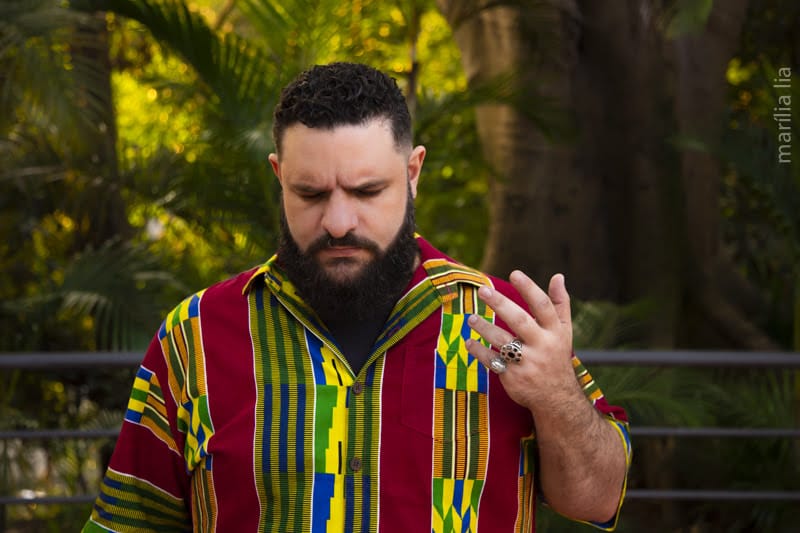São Paulo – Bluesman Adriano Grineberg from São Paulo is about to release his third solo album. The music is influenced by the East and Sufism, a branch of Islam popular in West African countries like Mauritania.
With a career spanning 20 years, Grineberg – who’s opened for B.B. King in São Paulo – is a researcher of blues music. According to him, Sufism is a core element of the genre. The culture of countries like Mali, Niger and Mauritania, as well as of the Tuaregs (Sahara Desert dwellers) informed the blues rhythmically, melodically and poetically.
“I’m a blues musician and my last album, Blues for Africa, features influence from Africa and its extensions. The music of Islam in North Africa travelled to the United States, and it’s the Islam-influenced music of the Sufis. Sufism is a key element of Middle East music, which doesn’t employ the tempered scale that’s used in Greek or classical music,” said Grineberg.
One vocal technique on showcase in his album is the slide or portamento. “The note slides, the melody keeps moving, it doesn’t linger in any one note. It’s a very widespread thing across the Middle East, and the melodies travelled to North Africa through the amalgamation of Sub-Saharan African peoples which embraced Islam,” he explained.

Grineberg’s soon-to-be-released CD 108 features a syncretic combination of religions and spirituality. There are songs in different languages, including Old Persian, Pakistan’s Qawwali, India’s Hindi, and Sub-Saharan Africa’s Yoruba, in reinterpretations of candomblé chants. “I descend from many races,” says the musician, part of whose family descends from places in the Middle East. “I did musical research, and through the blues I found the influence of Sufism. It’s a conflation of the spiritual paths that I’m on. Sufism is very big in India, for instance, and closely related with Hinduism. Pakistan is also a very Sufi country, said the bluesman, who’s been to both countries.
He also travelled to Mali, one of the nations that appealed to him the most. “It’s the most welcoming country, and one of the poorest in the world. These people are noteworthy, because in Mali, in Mauritania, that’s where the blues was born, that’s the DNA of the blues. And nowadays they have the so-called ‘desert blues,’ a style which brings the roots back to the desert,” said Grineberg, whose goal is to go to some Arab country.
Even though he hasn’t written a song in Arabic yet, this is a challenge he wants to take on for his next record. “The track on this album that’s closest to Arabic is ‘Alla Hoo,’ a poem about the Prophet Muhammed. It’s a text from the Koran,” said Grineberg, whose music is also infused with Brazilian styles. “Northeast Brazil is permeated by Moor culture. The Northeast’s baião is really similar to African blues. This goes to show how influential Arab culture is.”
Listen to the track ‘Alla Hoo’:
Another connection between Arab traditions and the blues is orality. “History in Africa is passed on orally, just like the tales, or causos, from Brazil’s Northeast. And blues music is passed on orally through storytelling. When you sing the blues, you’re telling a story. It has to do with the expansion of Islam, which transformed all of Africa,” he explained.
108 will be released July 27 at Sesc Belezinho in a concert featuring eight brand new songs. Apart from the blues, Grineberg will play regional rhythms from Maranhão, India, Pakistan and Middle East.
Quick facts
108 album launch
July 27, 9 pm
Sesc Belezinho – Rua Padre Adelino, 1,000, Belenzinho
Find out more: https://www.sescsp.org.br/
Here’s a live performance of a track from the Blues for Africa album:
Translated by Gabriel Pomerancblum




